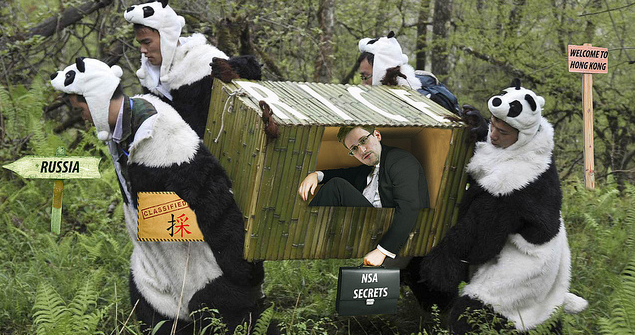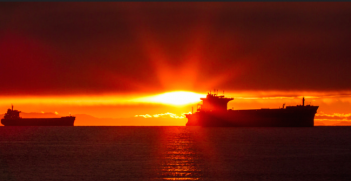Surveillance is Control

Citizenfour, a recently released documentary on Edward Snowden, raises important questions about privacy, security, liberty and control.
In 1517 Martin Luther nailed his principles to the church door, stating ‘Here I stand. I can do no other’. Nearly 500 years later, Edward Snowden did the same on film, putting it slightly differently: ‘Here I am. Fuck you. I’m not going to hide’. Both of these men outraged their employers, the Catholic Church in Luther’s case and the United States government in Snowden’s, which pursued and sought to punish them.
Citizenfour, Linda Poitras’ documentary which opened in February in Australia, stirs similar passions. It finds Snowden in self-exile in Hong Kong where he passes to Poitras and fellow journalist, Glenn Greenwald, data on the worldwide telecommunications interceptions conducted by the National Security Agency (NSA). It follows Snowden to Moscow where, reunited with his partner Lindsay, he remains, avoiding arrest.
The film is unlikely to arouse such outrage in Australia, however. We do not even have the constitutional protections of freedom and privacy whose flouting by the authorities so disturbs Snowden. Some people consider Snowden a traitor (as Attorney-General George Brandis does), which is what they called Andrew Wilkie and Julian Assange before him. Some will think they already know all they need to about the nerdy systems analyst from an army family who came to the NSA by way of the CIA and Booz Allen Hamilton, a management consultancy whose sole client is the US government. Others admire his courage. The Sam Adams Award, named after a Vietnam War whistleblower and given to both Snowden and Julian Assange, is dedicated to intelligence officials who have ‘demonstrated a commitment to truth and integrity, no matter the consequences’.
Snowden clearly understands and anticipates the consequences. On film, he and Greenwald plan a media strategy to explain that the US automatically intercepts, stores and analyses the world’s telecommunications. He describes how the NSA sifts vast quantities of data using XKeyScore and other programmes. A British counterpart, codenamed TEMPORA, also collects everyone’s metadata but is free of the legal restraints that supposedly apply to US citizens and is the envy of the National Security Agency. Massive though this ‘data-mining’ may be, people at the NSA still ask ‘why can’t we collect all the signals all the time?’ Greenwald’s finest hour, in this movie, comes when he calmly asserts on CNN that the US government in fact can and does collect not just all metadata but all content, too. National security, he then tells his Brazilian audience in fluent Portuguese, is only the excuse: the NSA’s objective is to enable the US, in alliance with the big telcos, to compete with and dominate other countries, their economies and companies.
In Berlin, Poitras films a meeting of concerned lawyers discussing the three charges laid against Snowden under the antiquated US Espionage Act. The process, one American says, is 95 per cent politics and 5 per cent law. She also interviews the founder of Lavabit, a small internet service provider, who was forced to close his business rather than give the FBI data that would reveal the identities of all its clients. She follows former long-serving NSA officer, William Binney, whose home was raided at gunpoint by the FBI in 2005 and who calls the authorities’ covert interception activities ‘a major threat to democracy’. His business was closed down too. The FBI has 1.2 million Americans on a terrorism watch list and Poitras is told that others so fear to be ‘on the list’ that they self-police their internet searches to avoid certain topics. ‘What is surveillance except control?’ someone asks.
Poitras focuses mostly on the charismatic Greenwald and the anguished, often silent Snowden, whose codename is ‘Citizenfour’. She catches his occasional outbursts, including the disgust he shares with Greenwald about Obama’s broken pre-election promise to eliminate illegal surveillance and protect whistleblowers. He is determined to go public, face the consequences and inspire others to do the same. Poitras’ lines of internet chat with Greenwald and Snowden appear, but we never see her: she is an occasional, indistinct, disembodied voice. In a cramped hotel room which Snowden and Greenwald assume is bugged, she films them passing each other key words on paper which they then tear into tiny pieces. But Poitras doesn’t capture the dramatic moment when Snowden is spirited away by WikiLeaks’ Sarah Harrison, nor his re-exile in the Moscow airport. This is a raw, low-budget documentary with lots of gaps, compared with the smoother ‘mockumentaries’ with which we have become familiarised. It reminds us how glamorised, sanitised or fictionalised those versions of events often are.
At a time when our government seeks further to increase its powers in the name of ‘national security’, Citizenfour raises with its Australian audience questions about privacy and security, liberty and control and how much of one we should sacrifice for the other. It raises the eternal problem of who will oversee the overseers, implicitly asking how far we can trust authorities which are not publicly accountable. We are divided by our response into two groups: the many, who will acquiesce, keep their heads down and hope to be presumed innocent, and the few, who will stand up and voice their concerns. But the internet is everyone’s source of information, including about the very authorities which use it for surveillance, the companies which use it for marketing and the media which use it for news. When they don’t like the result, they call it hacking, theft, treason and espionage. It enables individual citizens to become invigilators too and that is presumably disturbing for those who want to maintain control.
Dr Alison Broinowski, formerly an Australian diplomat, is a Research Affiliate at ANU and a Council member of the University of Adelaide. An earlier version of this article appears in Honest History, www.honesthistory.com. This article can be republished with attribution under a Creative Commons Licence.




